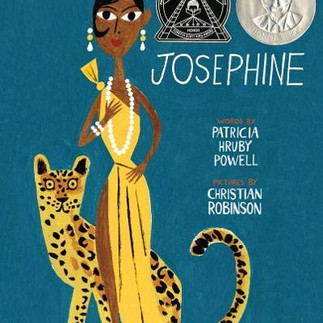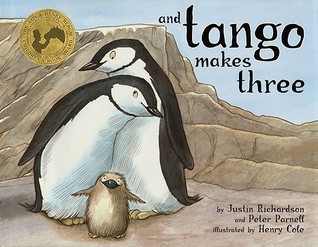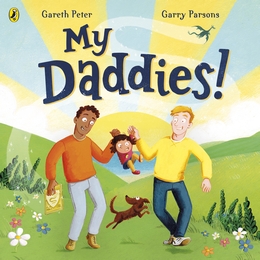“Discover who your child is – that’s an adventure”: on LGBT+ kids and allies
- Leah Jewett

- Mar 1, 2023
- 9 min read

Speaking from experience as a queer-positive sex educator, Dr Nadine Thornhill specialises in child and adolescent sexuality and co-stars in Every Body Curious – the YouTube series for kids aged 9 to 12 that features real children, some with disabilities, learning about bodies, consent, sex and relationships. Episodes include Just Say Gay, Orientation and Love Is Love.
Here – and in our Speak Out video – Nadine talks about ways we can change our language, what you can say and do if your child comes out to you, and how all parents and kids can be LGBT+ allies…
“🌈I didn’t have the words or knowledge to understand why or how I was different.
I just always knew. And I knew I had to hide parts of myself or change certain behaviours
in order to be acceptable” – actor Paul Sloss, writer/star of 10-minute film Out 🌈
Straight people don’t generally question their sexual identity – they don’t have to come out as straight. But automatically LGBT+ people have had to confront difference in themselves and be self-aware. How young might someone be when they start having LGBT+ feelings, even if they don’t come to terms with them or express them till later on?

Dr Nadine Thornhill Some people say they recognised that there was something different about the way they experienced attraction or related to romance as young as age 2 or 3.
Tell us about how accepting kids can be of gender-fluid identities…
Nadine Kids can accept and synthesise what we might think of as complex concepts because they’re in that phase of taking in information about the world. If as a child you’d been taught that there’s only red and green, and you built your social concepts on this binary, and then you were told: “Actually there’s yellow, orange, turquoise and infinite shades of red and green”, that’s going to be incredibly disruptive. It would mean unlearning something you’ve accepted as axiomatic and replacing it with something that seems far more complex.
Part of it is the nature of children being more open to the information they’re getting rather than being entrenched in ideas they’ve had all of their lives.
From left: Evan McLeod, age 6, in America; Korben goes to his prom, Norfolk, UK; Colin Stuart, 6, & his dad in Australia
With young kids, knowing about LGBT+ identities can be quite simple: that families don’t necessarily have a mum and a dad, that two people can love each other no matter who they are and that love is love…
Nadine Young children don’t have the ability to think of things in the abstract. So yes, if you present them with the idea of 2 people of the same gender or somebody who identifies differently than the gender they were assigned at birth, it’s easier for them to be like: “OK. You do you. I’m watching my shows and playing with my toys and hanging out with my friends. I’m living my life; you live your life. It’s all good.”
On your website you proudly say: “I’m a black queer cisgender woman.” How do you feel about the way you came out to your parents now that you’re the mother of a teenage son?

Nadine When I was very young, I wasn’t even aware that being gay, bisexual or anything other than heterosexual was a thing. I didn’t even know that I didn’t know. I didn’t have the language, the concepts. Later I realised: it’s really about how you experience attraction, and I do not experience attraction based on gender. I’m not really picky about the kinds of genitals I like, or the kind of bodies. So it was like: “I’m not really straight – I guess I’m queer. That makes sense. That tracks.” Coming out was never an event – I was just like: “Now this is how I describe my sexuality.”
With my mother I’d posted something on Instagram, and she said: “I didn’t know you were queer” and I was like: “I kind of forgot to tell you ’cause it didn’t seem like a big deal.” And she was very reassuring and effusive. She called me back that night to make sure I knew that she loved and supported me no matter what.
I like the idea that before someone comes out to someone else, they have to come out to themselves. But it can take a lot of courage for a child to trust their parent with this important truth about who they are. When a child comes out, what’s your advice in terms of what a parent can say or ask, or how to listen?

Nadine 🌈 Try not to make assumptions about how your child is feeling, but really pay attention to where they are emotionally. They might be scared, nervous or anxious. That might be a cue to go into reassurance mode and be like: “Thank you for telling me. I love you.” Those are 2 things you can say regardless.
🌈 Take the lead from your child. Some kids might want to do it casually, like: “I don’t want my parent to make a big deal about it.” If you get that vibe you can say: “Thanks for telling me. I love you. Totally open to talk about this whenever you want to.” Keep it chill. Sometimes kids want to keep it moving.
You don’t have to press them for a lot of information, but let them know that you’re open to talking about it as much or as little as they’d like. You can ask: “Is there anything you need from me now – or moving forward?” They may not know, but open that door so they know you’re there as their support person.

🌈 If you’re struggling with some of your feelings, which can happen, find outlets for support – a therapist, a counsellor, friends or family who can hold that space while you process. It’s not your child’s job to manage your feelings, but your feelings are still valid. Look for people who are also invested in supporting your child and their wellbeing without saying things like: “Maybe your kid isn’t queer” – they are! – people who can help you get to that place of acceptance, because sometimes it doesn’t happen right away.
Out and proud: famous people and their gender-nonconforming kids… Row 1: Charlize Theron & Jackson, Sting & Eliot, Magic Johnson & EJ. Row 2: Jennifer Lopez & Emme, Dwyane Wade & Zaya, Jamie Lee Curtis & Ruby
If a parent thinks their child might be LGBT+, is it OK for them to bring it up with them?
Nadine Let your child come to you. If they haven’t said anything, there’s a reason. They may need to work through some stuff, or they may want to talk to friends, a sibling or someone else first. It can be difficult to think: “My kid’s going through something. I really want them to talk to me” and you want to be the first person they go to – but sometimes you’re just not, and it’s no commentary on you as a parent.

My advice to all parents is to think about how we talk about people with queer identities and queerness – and how we bring that into our home. Who are your friends and the people in your community? What media do you consume? When you see depictions of queerness or you encounter queer people, how do you talk about them? If you’ve been positive and supportive, it will be easier for your kid to come out to you if they need to.
Doing everyone proud – LGBT+ people making headlines and history… Row 1: Alan Turing, Ian McKellen, Josephine Baker. Row 2: Elton John, Virginia Woolf & Vita Sackville-West, Freddie Mercury. Row 3: Billy Porter, Andy Warhol, Tom Daley & husband. Row 4: RuPaul, Rock Hudson, Cara Delevingne. Row 5: Billie Jean King, Janelle Monáe, Harvey Milk
LGBT+ visibility and normalising difference are important. I like the idea of parents asking their child if they know any kids, relatives, historical figures or celebrities who are LGBT+
Nadine Absolutely. If you have a tidbit about some cool queer historical figure to share with your kid, that’s great. If your kid is into a celebrity they might not know is gay, it would be totally cool to open up those conversations.
What can parents say or do to help their kids who are LGBT+?
Nadine 🌈 With younger kids, regardless of their sexual or romantic orientation – which a lot of times we as adults won’t be aware of because they haven’t developed the language to talk about it or that’s just not where their focus is as kids – there are many books, TV shows and internet content targeted at children that include folks with queer identities. Bring those into your home.

🌈 Be open about the queer people you know – friends, family, co-workers, community – but only be as open as they are comfortable with you being: don’t out them.
🌈 Think about your social circle. There are a lot of really dope queer, trans and non-binary folks you might want to get to know and hang out with – and they have families, so chill with those families sometimes just because they’re rad and could be awesome friends.
🌈 Watch, listen to and read queer content yourself.
World of difference… Row 1: Pop’n’Olly site for kids, I Am Jazz, bisexual Superman. Row 2: Queer Kid Stuff site for kids, Julián Is A Mermaid, Worm Loves Worm. Row 3: The Simpsons, And Tango Makes Three, Mommy Mama And Me. Row 4: My Daddies, Pixar SparkShort Out, Made By Raffi. Row 5: Young Royals, same-sex Peppa Pig parents, Heartstopper
Yes, counterbalance the 99.9% of what we see that’s heteronormative. Also think about the language you use. Make a habit of saying: “One day you might have a girlfriend or a boyfriend” or say “a mum and a dad – or 2 mums and 2 dads” to show that you’re accepting, open-minded and a good LGBT+ ally
Nadine It’s great to provide a broader perspective on relationships for your kid. You can be even more gender neutral: “Some day you might date somebody” and: “Kids have parents.” Sometimes mixing up the gender stuff gets kids thinking about it a bit…
We need to always question our culture and not just default and say “he” for a pet – say “he or she”. While you’re at it, consciously put the “she” first so you’re saying “she or he” and “girls and boys”. There are things we should try to train ourselves out of and into…
Nadine My best friend makes a conscious effort, when she’s talking about an animal whose biological sex she doesn’t know, to use “she” instead of “he”. That’s awesome.

Something we try to do in our home is that unless we know a human being’s gender, we’ll use “they” as the pronoun even if they’re presenting in a way that is codified as masculine or feminine.
That’s how we’re going to change people’s mindsets. In emails or in Zoom meetings people put the pronouns they’d like to be defined as: she/her, he/they or whatever
Language always evolves. One of my values is: “Humanity before grammar.” If using “they” or “ze” honours somebody’s humanity, that’s more important than the rules of grammar.

On the podcast Your Parenting Mojo you asked: “What can I do to make it easier for my child to let me know who they are as they learn who they are?” and you said: “I get to discover who my child is – and that’s an adventure.” Fantastic!
Nadine It’s what I try to do, but not just in terms of my child’s sexual orientation or gender. I try to listen, which is difficult because – as folks may have gleaned – I really enjoyed talking! When my kid tells me things, on my best parenting days I try to take a breath. He’s going through puberty – a highly hormonal emotional time! And I’m in perimenopause. So we can butt heads real hard. And when it’s: “I’m in my feelings about that”, I think: “Just hear what he has to say.” I try to be open and receptive to who he is, pay attention to what he needs and how he’s feeling, and be supportive in offering advice if he wants it, offering information.
It’s important for schools to make LGBT+ people and issues visible, with flags, posters and displays, and in lessons. That’s crucial in tackling discrimination, bullying and the internalised homophobia kids might feel. In 2022 young people aged 12 to 20 created this LGBT+ Youth Manifesto. I was struck by quotes like: “If there’s no LGBT sex education, then kids will think it’s not normal to be gay” and “If you don’t learn about LGBT, you can’t be kind”
Nadine I hard agree with those statements. I’m a huge fan of young people taking charge of their sex ed and education. And we need to diversify education and bring in more openly queer teachers and folks in administration and curriculum development so it’s not just: “We need to talk more about these people.” I want teachers to be able to be openly and proudly queer in a classroom, so it’s like: “Your cool, awesome queer math teacher – yeah, dope!” That’s also going to normalise queerness. Because it is normal. It’s part of the spectrum of human experience and expression.
Agreed. That whole thing of visibility: “You can’t be it if you can’t see it”…
Nadine Absolutely. If you give queer people space at the table, they’ll just be like: “I’ve been queer my whole life. Here’s what I needed that I didn’t get or what I need now.” It’s pretty straightforward – no pun intended! Every single human on earth is affected by sexuality.

Ideally children should learn from a young age about LGBT+ issues and people, different families, that equality and respect matter, and that people should be free to express themselves and be who they are. Nadine, give us a final thought for all parents…
Nadine I don’t think we can ever go wrong by accepting and embracing who people tell us they are.
People know who they are at their core – so let them be that and embrace it and love them for it. Accept them for it and make space for them.


Dr Nadine Thornhill is a sex educator, the author of Let’s Talk About Sexuality: Connecting Through Conversation With Children, Tweens And Teens, and the co-host and co-producer of Every Body Curious. Visit her website and follow her on Instagram
Watch our short National Lottery funded Outspoken / Speak Out video with the energetic and creative Dr Nadine Thornhill here

































































































Comments